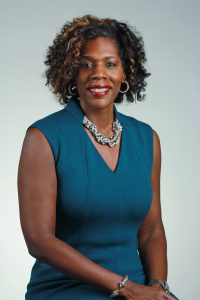How Lilly is Supporting LGBTQ+ Employees

This month we are highlighting our Diversity Best Practices member, Eli Lilly and Company, which has just held an innovation lab focused on supporting the LGBTQ+ community. We sat down and spoke with Rhonda Pacheco, General Manager of Lilly Canada and Kelly Copes Anderson, Associate Vice President, Diversity, Equity & Inclusion (DEI) for Lilly worldwide to learn more about the event’s success and how other organizations can learn from Lilly’s impact on employees and business goals.
What motivated Lilly to hold an innovation lab focused on supporting the LGBTQ+ community?
KCA- When thinking about DEI agendas and strategies, it is important to make life better for employees. Lilly understands the experiences that our underrepresented colleagues are having, which is why we implemented our innovation labs. We have been unpacking five employee journeys with the labs, focusing on women, LatinX, Black, AAPI, and LGBTQ+ communities. We want Lilly to be a better place to work for all individuals, so we surveyed hundreds of employees with the hopes of making a difference. Our innovation labs evoke change within leadership, HR, and talent management. Specifically, our Pride ERG was brought together to dive deeper into the insights collected from the surveys and create a structured approach to generate action.
RP- To add, what we learn and how we turn those learnings into actions makes us better leaders and it causes all of us to be intentional daily.
What could be the potential impact on a corporation if they are not encouraging LGBTQ+ advocacy?
RP- We do these innovation labs to create environments for people to be themselves. People are less innovative when they are scared and afraid to express freely. Talent is also at a loss because with fear, talent cannot thrive. Because talent is at the core of what we do as companies, we cannot deliver if we aren’t doing better.
KCA– Exactly! At Lilly, we are lucky to have a range of talent. The innovation that we focus on for our patients as well as the game changing medicines we produce makes it imperative for people to bring all of themselves into the workplace. We want to accept and welcome ALL to ensure everyone has a fair shot at contribution. We as a company cannot work well if there are barriers.
Once the event was complete, what was the employee response in regard to the delivery, execution, and information that was discussed?
KCA- There was such a wide range of people there! For executive leadership, their eyes were opened to some things that they didn’t realize was happening or that they needed to pay attention to. Society isn’t always welcoming and some of the experiences discussed were both painful and offensive. We overall learned how to be better allies and advocates. We came up with solutions and personally, I left with more compassion and knowing that this is a priority.
RP– As a member of the LGBTQ+ community, I saw fifty plus people stop their day to make us feel like we mattered. They were actively listening and being more aware. Plus, it gave allies, advocates, and people who make up the wide array of representation in the community the “green light” to be curious and ask questions. For example, I am now doing reverse mentoring with a colleague who identifies as transgender, because I want to be a better advocate for them as an even more specialized group. Showcasing that the community is not a monolith will make us more intentional as leaders.
What steps are being taken by Lilly to actively move from allyship to an inclusive advocate for the LGBTQ+ community?
KCA– Our Pride ERG has strong sponsorship behind it, along with a robust global ally program. Currently, we a creating computer-based training on allyship to better define what good looks like. Once someone completes the training, they are asked, “what actions will you take now that you know,” in hopes of furthering the discussion outside of the learning environment. To start, we are making this a requirement for our executive leadership and then we will distribute those same guidelines to the entire management team.
How has Lilly taken the information learned during the innovation lab and applied it the company culture and strategy? How is leadership measuring the success or impact of these changes?
KCA- We have pulled from all the learning activities we conducted to bring action-based initiatives to the executive community, including the CEO. We are making changes in talent management and leadership expectations based on findings from the innovation labs to drive change. Change can make it safe to thrive and we want to encourage psychological safety through sponsorship programs, and there is interest from leadership. This will be actionable, and the swiftness is because we have strong executive sponsorship and advocacy.
RP– Yes! It’s amazing to have someone in executive leadership who has your back and knowing that the support is there. The meeting for sponsorship programs will be happening in the near term and it is incredible to see the genuine support behind it.
Interested in learning more about Diversity Best Practices and how we can help move your DEI efforts forward? Contact us.





